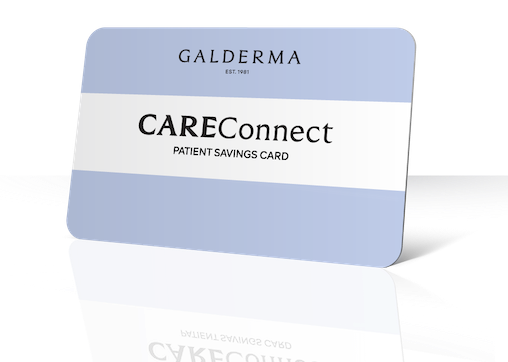

TAKE CONTROL
WELCOME TO THE ROSACEA UNIVERSE
Here you’ll find tips and tricks on how to help manage your rosacea and identify your triggers, as well as the latest rosacea news and insights!
ARE YOU SUFFERING FROM MASK-
RELATED ROSACEA?
Almost two thirds (63%) of people with self-reported rosacea are experiencing worsening of symptoms as a result of wearing a mask.*
Are you?
During Covid-19, reports of mask-related skin conditions were on the rise. Unfortunately, mask wearing can also cause mask-related rosacea
A number of people living with rosacea have said that mask wearing has significantly increased the severity of their rosacea, and has had a negative impact on their quality of life†
DON’T LET A MASK GET IN YOUR WAY!
If you’re still wearing a mask, here are some tips on how you can help manage your rosacea:
![]()
FRAGRANCE-free
moisturizer
Apply a fragrance-free moisturizer under your mask
![]()
New or
clean mask
Try to use a new or clean mask every time
![]()
Different
masks
Experiment with different masks to find one that fits, and doesn’t cause you to overheat
It is important that your dermatologist understands how wearing a mask has affected your rosacea. We’ve developed an interactive guide to help you record and discuss your experiences with rosacea, for you to take to your next consultation
Remember, even if face-to-face visits are not possible, your dermatologist may still be able to help you

Rosacea factsheet
More information on the signs and symptoms of rosacea, identifying your triggers, as well as tips and tricks to help manage them
Acne vs rosacea checklist
If you would like to identify whether your bumps and blemishes are rosacea, acne, or a little of both, speak to your dermatologist and check out our acne vs rosacea checklist

STAY CONNECTED
Sign up and Join
our community
Sign up here to receive updates and useful information to help better understand your rosacea
Important Safety Information
Indication: ORACEA® (doxycycline) 40 mg* capsules are indicated for the treatment of only inflammatory lesions (papules and pustules) of rosacea in adult patients. ORACEA does not lessen the facial redness caused by rosacea. Adverse Events: In controlled clinical studies, the most commonly reported adverse events (>2%) in subjects treated with ORACEA were nasopharyngitis, diarrhea, hypertension and sinusitis. Warnings/Precautions: ORACEA should not be used to treat or prevent infections. ORACEA should not be taken by patients who have a known hypersensitivity to doxycycline or other tetracyclines. ORACEA should not be taken during pregnancy, by nursing mothers, or during tooth development (up to the age of 8 years) and may cause reversible inhibition of bone growth. If Clostridium difficile associated diarrhea (CDAD) occurs, may need to discontinue ORACEA. Although photosensitivity was not observed in clinical trials, ORACEA patients should minimize or avoid exposure to natural or artificial sunlight. The efficacy of ORACEA treatment beyond 16 weeks and safety beyond 9 months have not been established.
You are encouraged to report negative side effects of prescription drugs to the FDA. Visit www.fda.gov/medwatch or call 1-800-FDA-1088.
*Based on a self-administered survey of www.FaceUpToRosacea.com and www.stelldichdeinerrosacea.de email subscribers during December 2020–January 2021; 87% of whom state that they have a rosacea diagnosis from a healthcare professional; 13% believe that they have rosacea but are not yet diagnosed
†Multicenter, observational study conducted in Italy which assessed the impact of mask use in patients with pre-existing acne or rosacea over 3 months
‡30 mg immediate release and 10 mg delayed release beads
REFERENCES
1. Data on file. 2. Giacalone S, et al. Int J Dermatol. 2020;59(8):e269–70.3. Giacalone S, et al. Clin Exp Dermatol. 2020 Jul 13:10.1111/ced.14376. doi: 10.1111/ced.14376 [Epub ahead of print]. 4. Damiani G, et al. Dermatol Ther. 2021 Feb. DOI: 10.1111/dth.14848. [Epub ahead of print]. 5. National Rosacea Society (2020). Avoiding rosacea flare-ups during the Covid-19 pandemic. Available at: https://www.rosacea.org/blog/2020/april/avoiding-rosacea-flare-ups-during-covid-19-pandemic. Last accessed: September 2021




